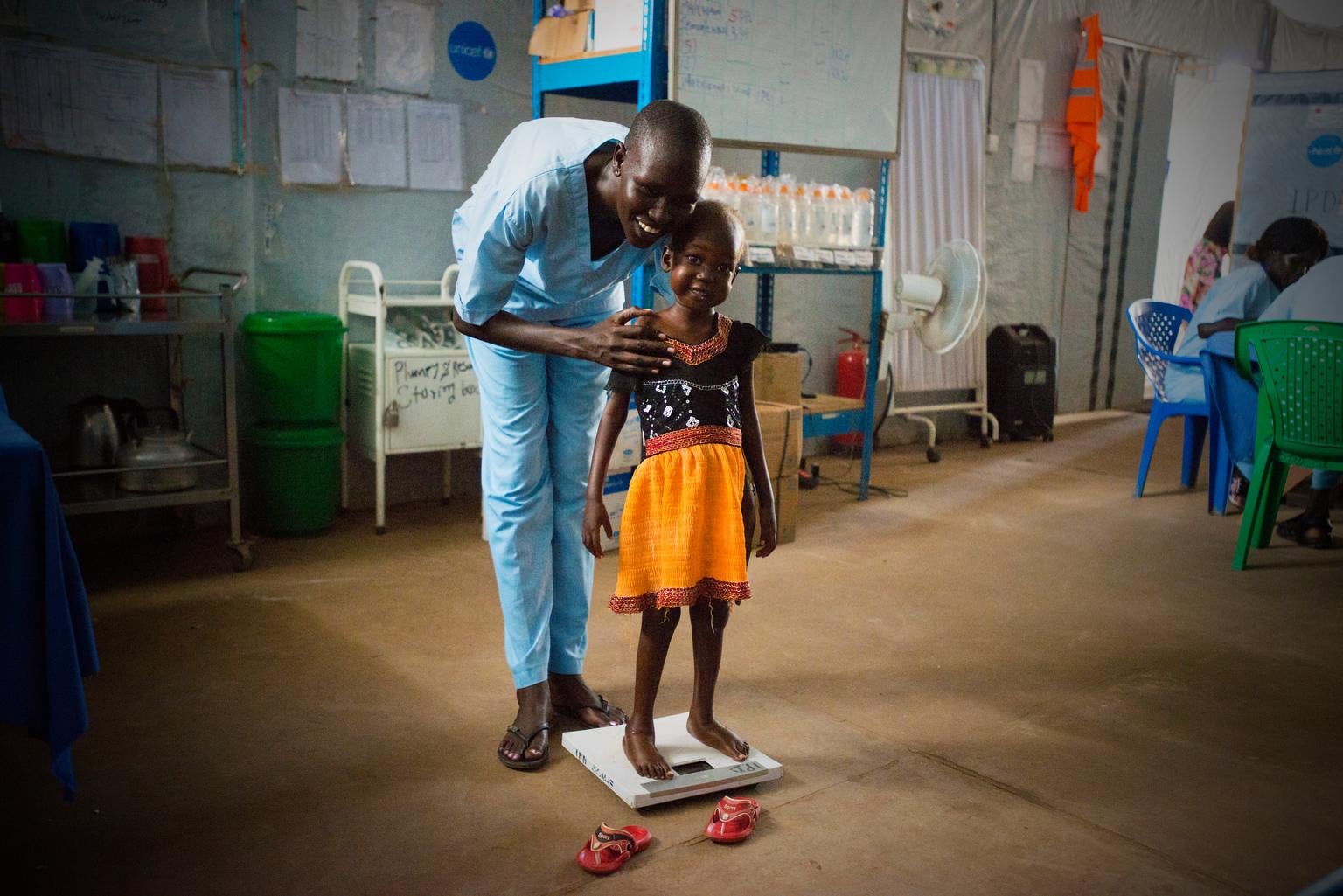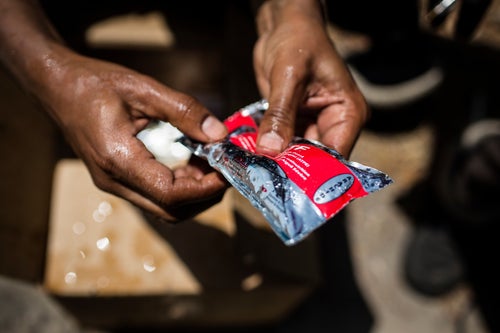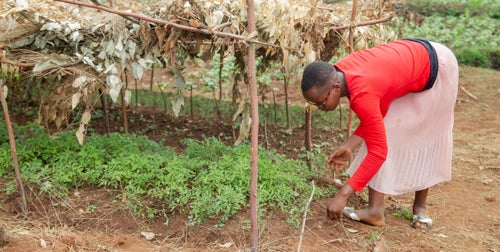To photojournalist Sebastian Rich, the world at times seemed broken. Having travelled internationally for over 40 years photographing war and natural disasters, he had met children struggling to survive in horrifying conditions. “It is hard not to be left with a creeping despair that all is lost forever,” he said. “But every now and then...”
Four-year-old Nyajime was too weak to sit up on her own when Sebastian found her, severely malnourished and near death in a medical clinic in Juba, South Sudan. She lay silently cradled in her father’s arms. Her father had stayed by her side since she was taken into emergency care.
Nyajime’s state was tragically common in the clinic. Prolonged conflict had thrown South Sudan into a food crisis and left over 250,000 children with severe acute malnutrition. Thousands of families had been driven out of their homes and into overcrowded camps, drastically increasing children’s exposure to disease and recruitment by armed forces.
UNICEF had responded to the crisis by delivering life-saving treatment for severe acute malnutrition in medical facilities across South Sudan.
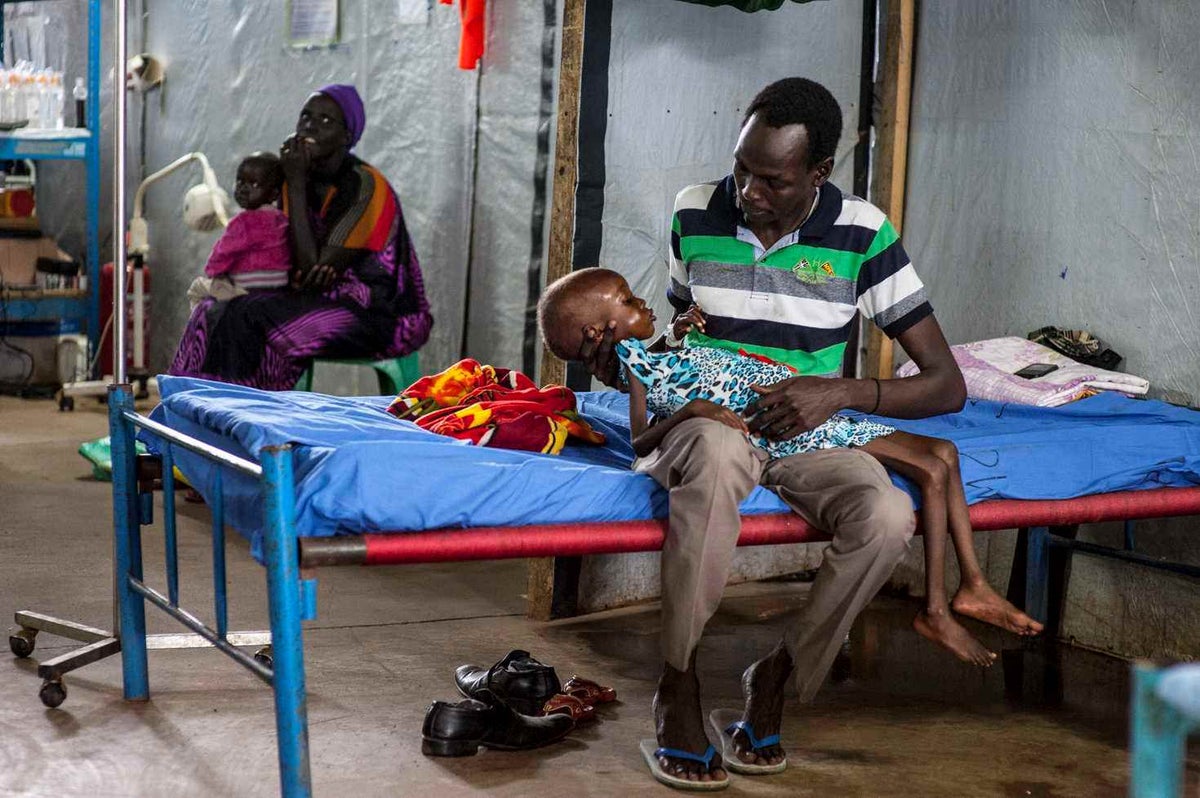
“There was no food at home and we couldn’t feed her well,” said Nyajimes’ father. “She was getting more and more sick every day. The day when I brought her to the clinic she wasn’t moving, she couldn’t walk or sit.”
In that moment, lying weak in her father’s arms, Nyajime was one of too many children dying of severe acute malnutrition and tuberculosis.
Sebastian was outraged. “As a father I could not help but feel terrible anger and frustration that a child in 2015 could be in such a terrible condition,” he said.
“I returned about every other day to Nyajime's bedside in the hope that I would be documenting the recovery of a brave little girl.”
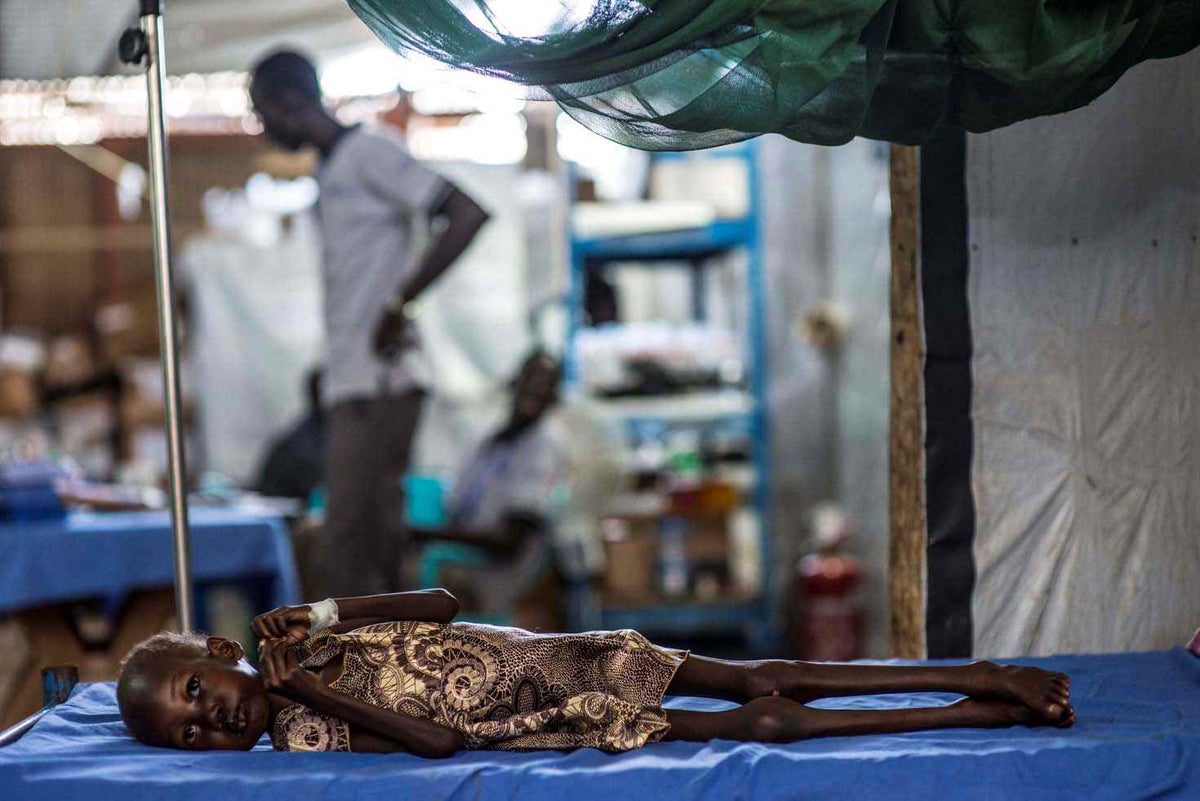
With UNICEF’s support, Nyajime began therapeutic feeding to alleviate her malnutrition and drugs to combat her tuberculosis. By day three of her treatment in the UNICEF-supported clinic, Nyajime had gained the strength to sit up. When she found the strength to smile so did everyone around her.
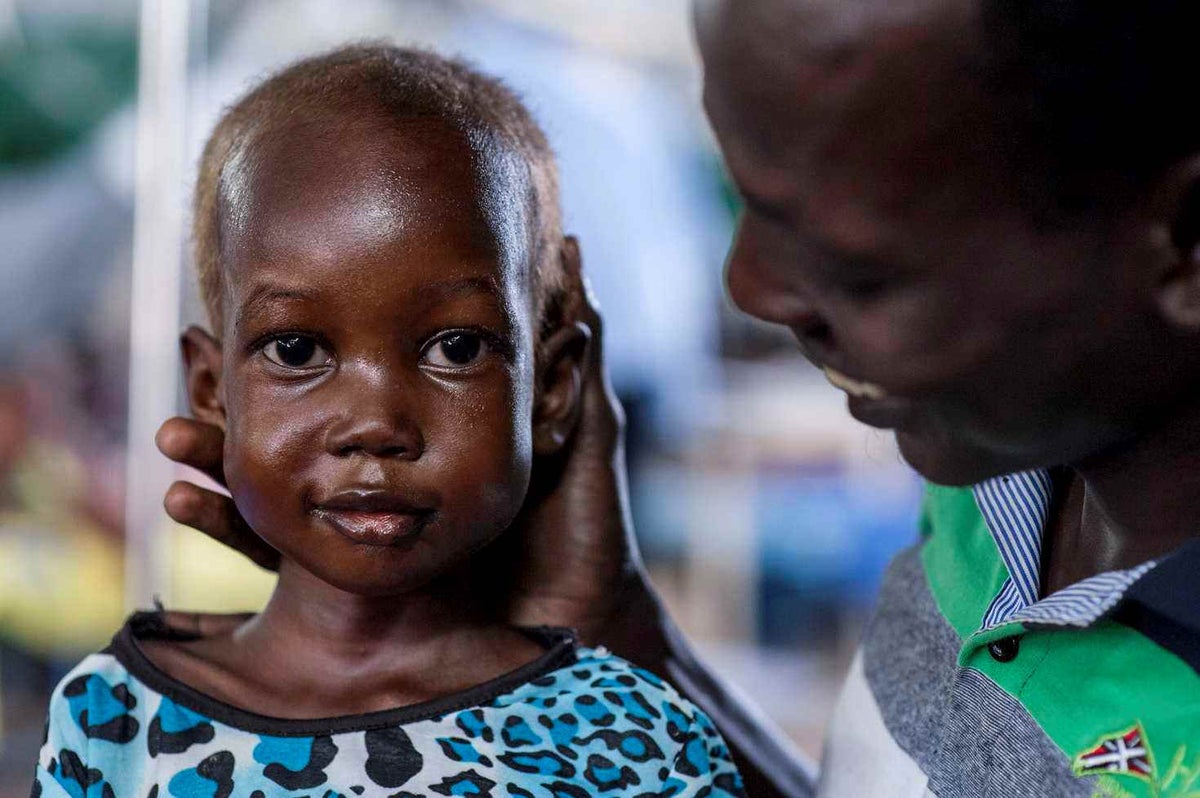
Within eight days, Nyajime had gradually regained the strength to stand, though shakily at first. She watched on, curious and alert, as her father and the doctors tracked her weight gain and recuperation on day 11. They carefully monitored her progress to ensure there would be no chance of relapse.
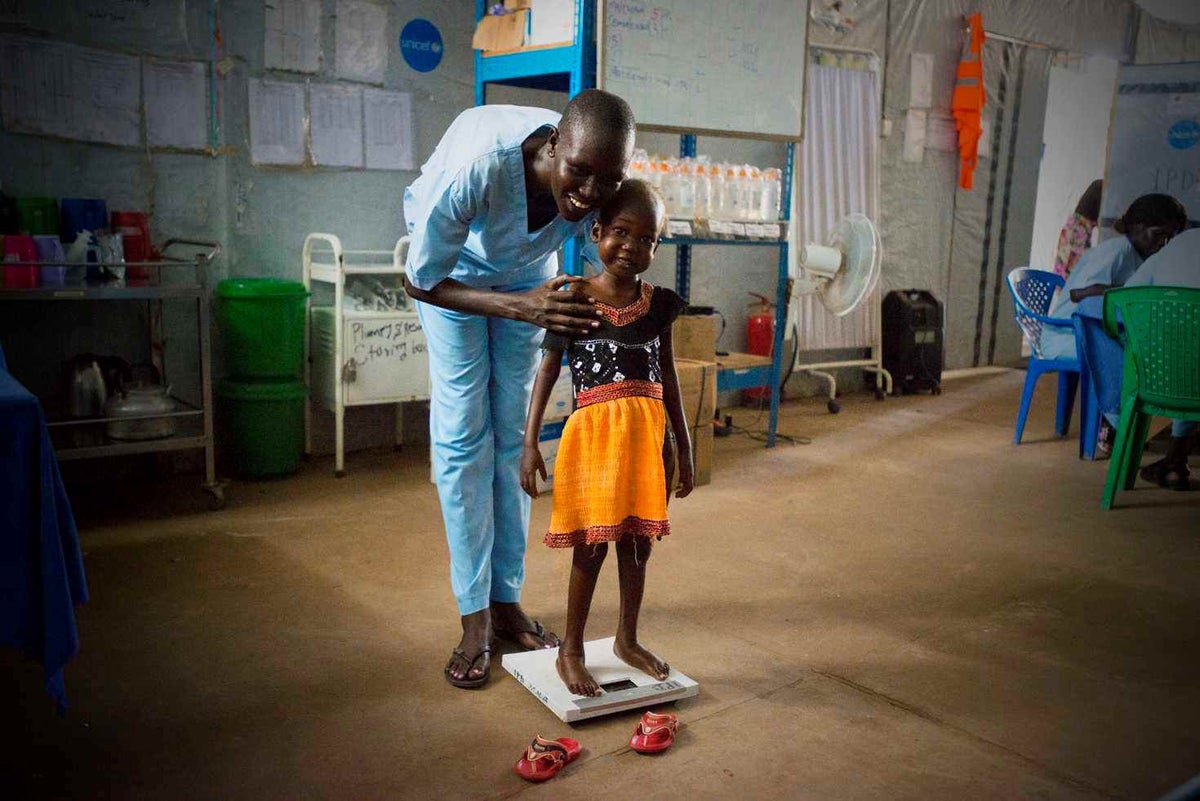
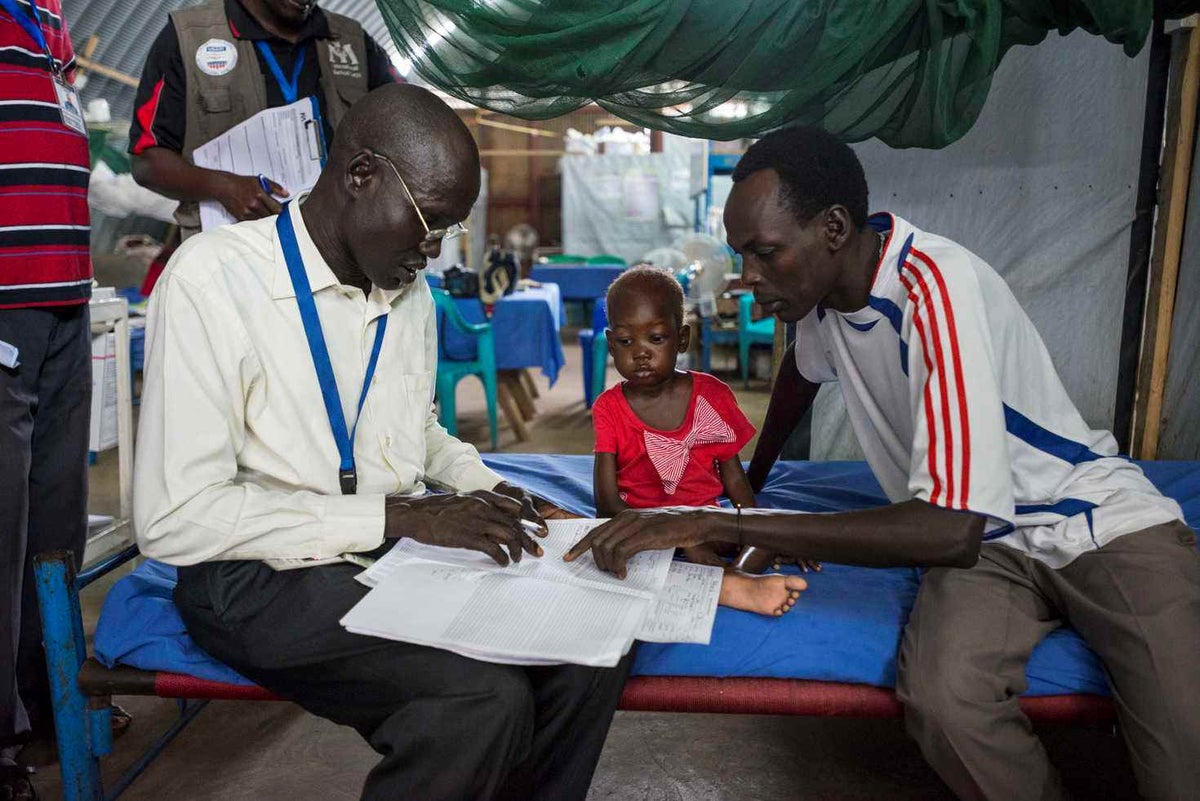
Within two weeks, Nyajime had seized a second chance at life. By this point, the doctors expected her to make a full recovery with continued treatment.
Before, her body had weighed less than half of what it was meant to at her age, yet was too heavy for her to lift. Now, Nyajime had survived.
“I first met and photographed Nyajime as she lay on a hospital bed almost lifeless,” said Sebastian.
“Four-year-old Nyajime was the small ray of hope that managed to elicit a smile and, admittedly, a somewhat moist eye from this grumpy old photographer. She left me with a slightly less cynical vision of this seemingly broken world.”
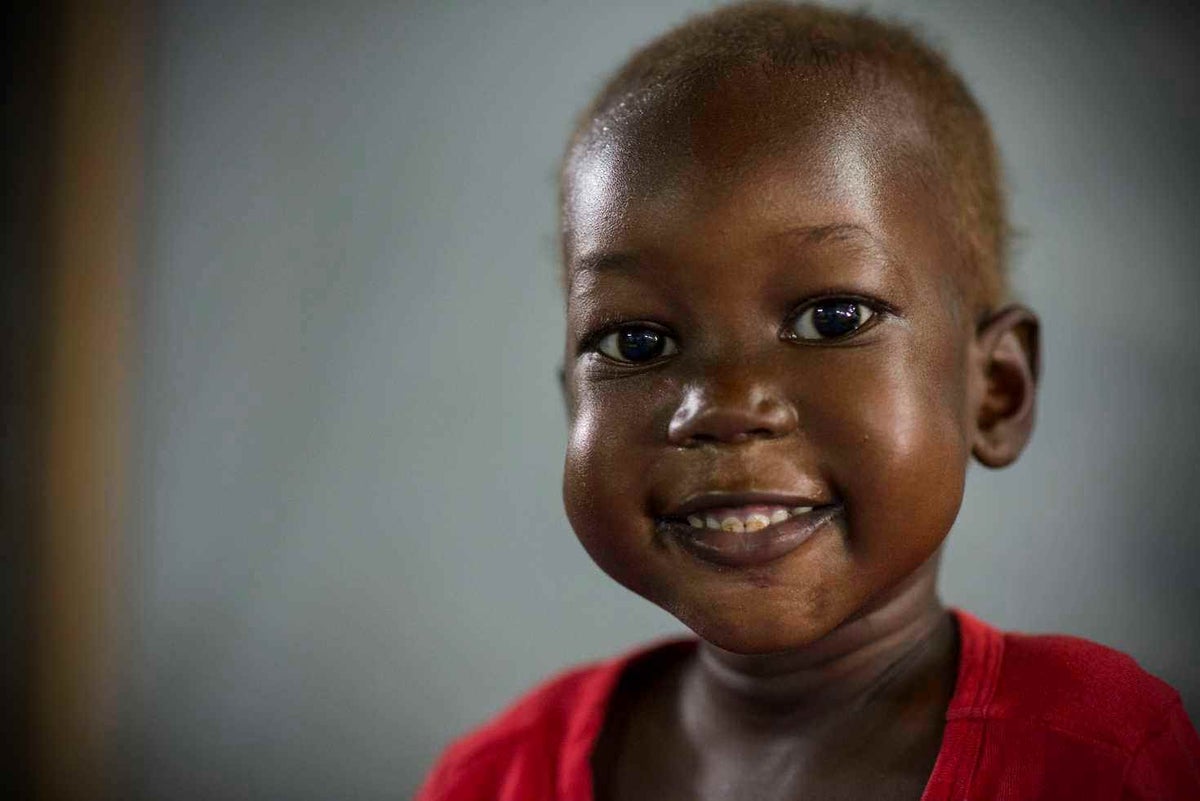
A year since Nyajime was admitted to the UNICEF-supported clinic in Juba, we can see the results of her treatment. She laughs and plays with her family, and makes the most of every day she has to live. When Sebastian returns to see her, she dances and sings to songs on his iPhone.
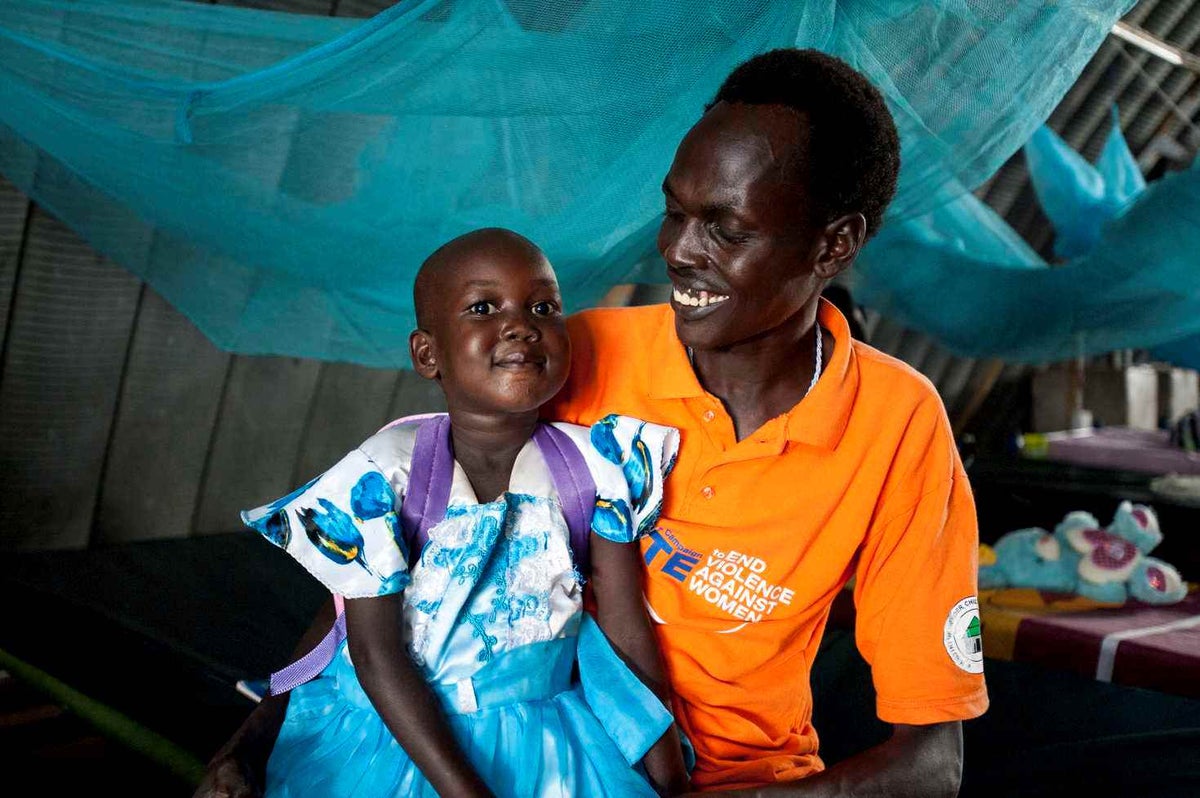
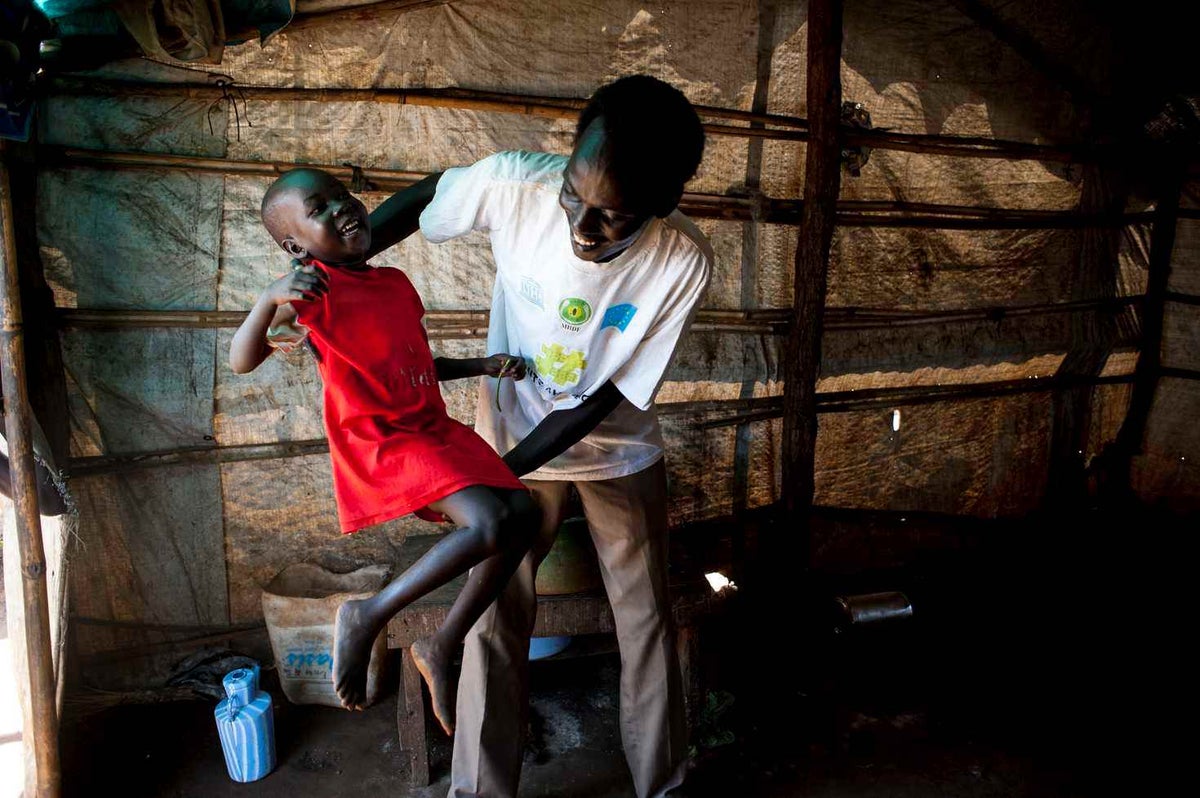
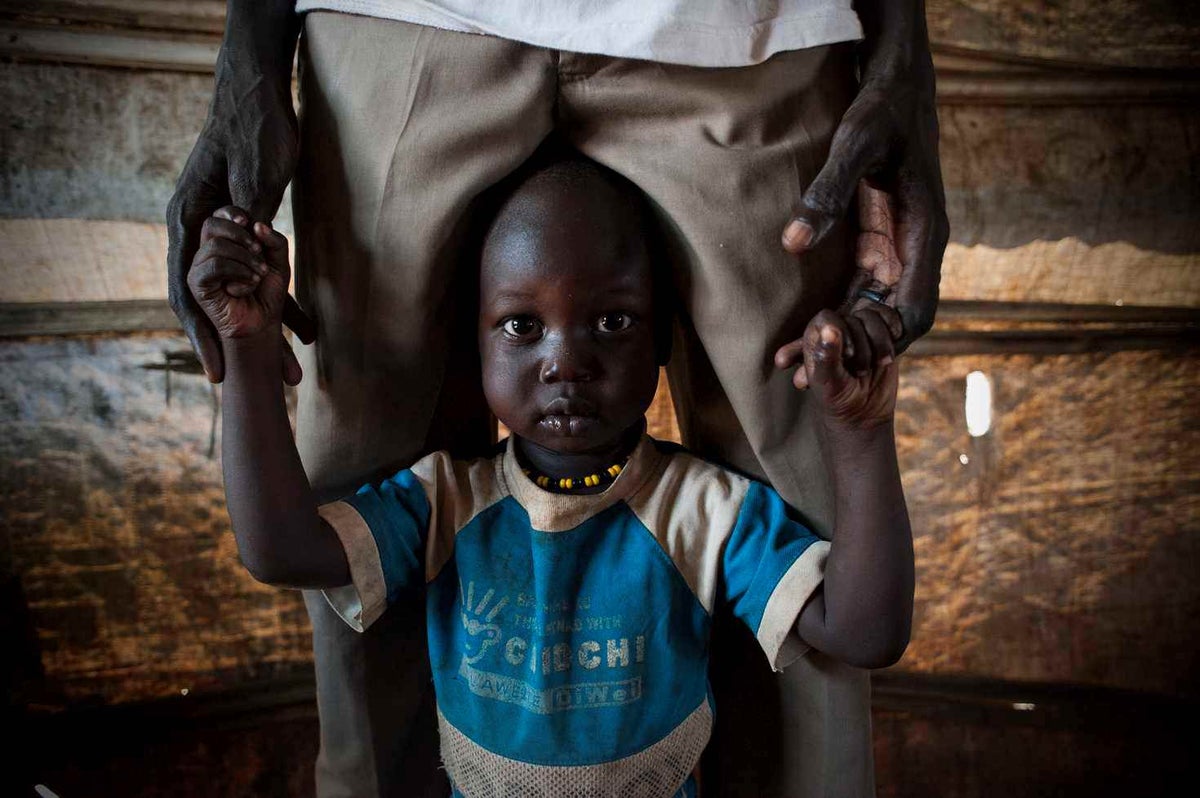
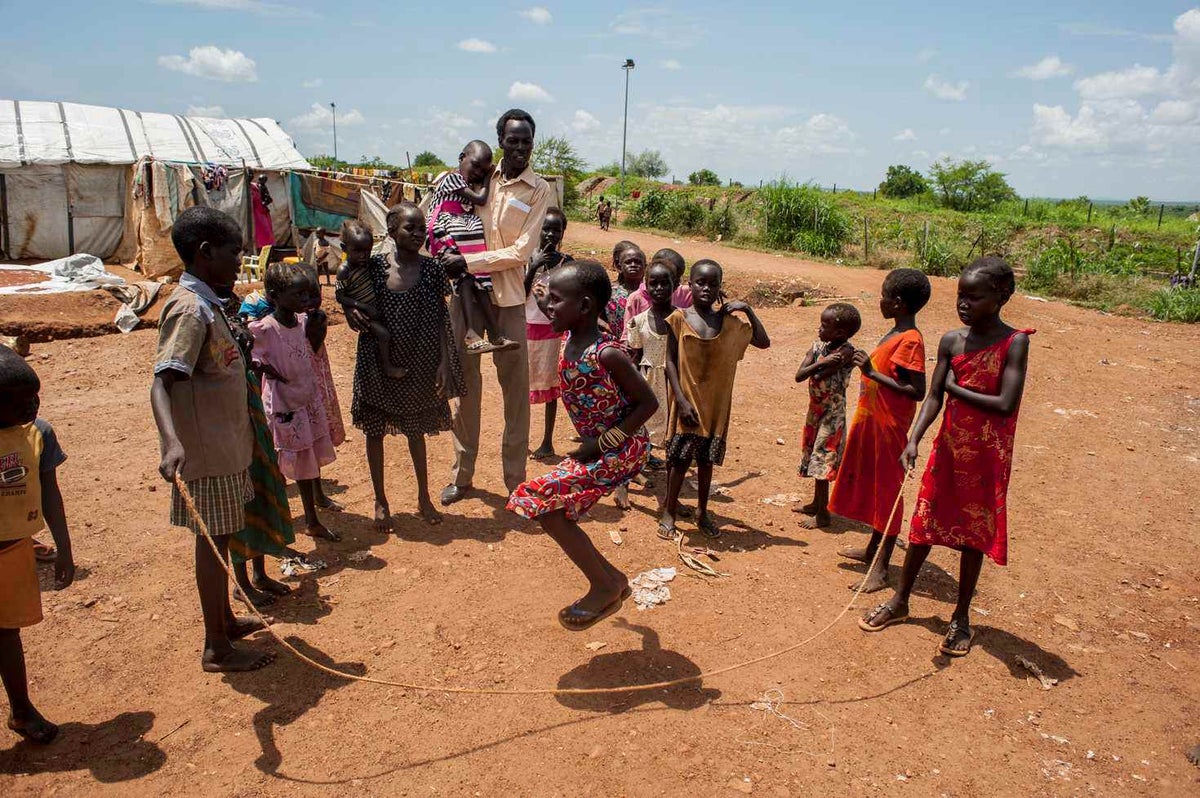
Nyajime’s story is one of hope but many children don’t have such a happy ending.
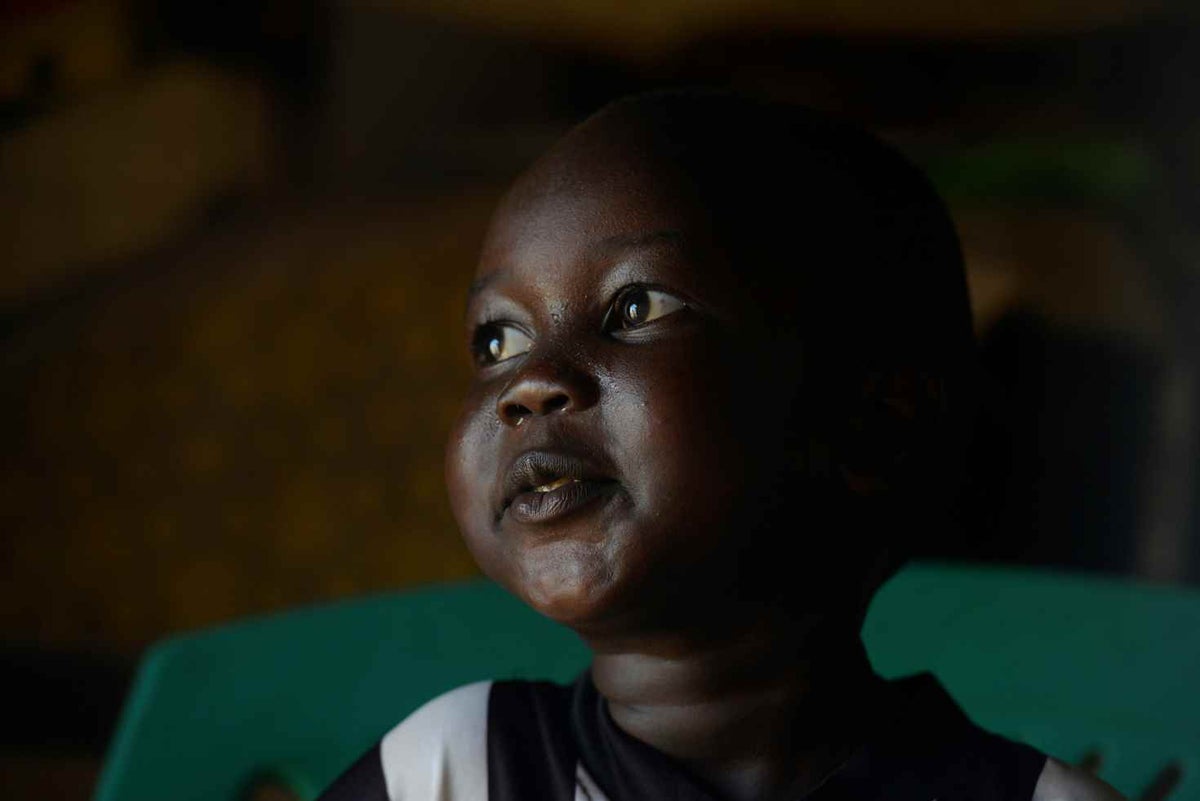
"My only hope is that events in South Sudan do not repeat this awful ordeal for Nyajime, or the thousands of other children facing an extreme lack of food and other necessities in this war torn country."
Related articles
Stay up-to-date on UNICEF's work in Australia and around the world



